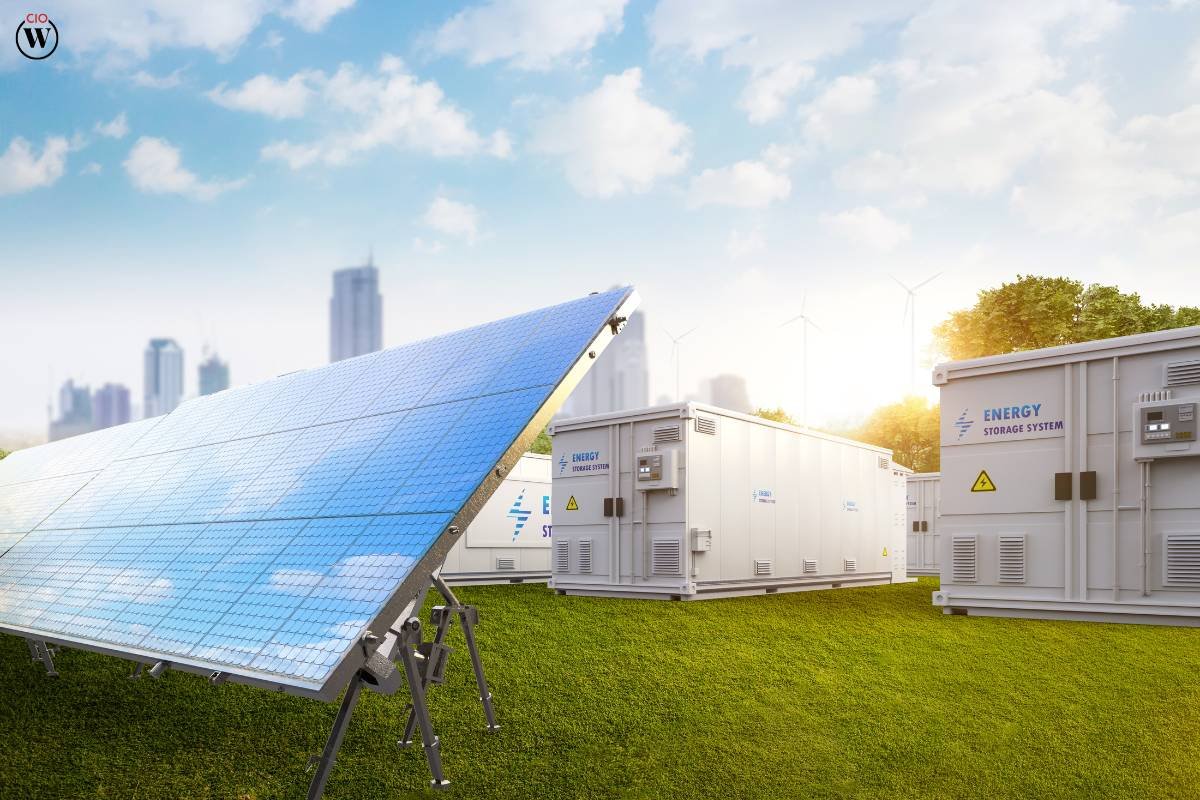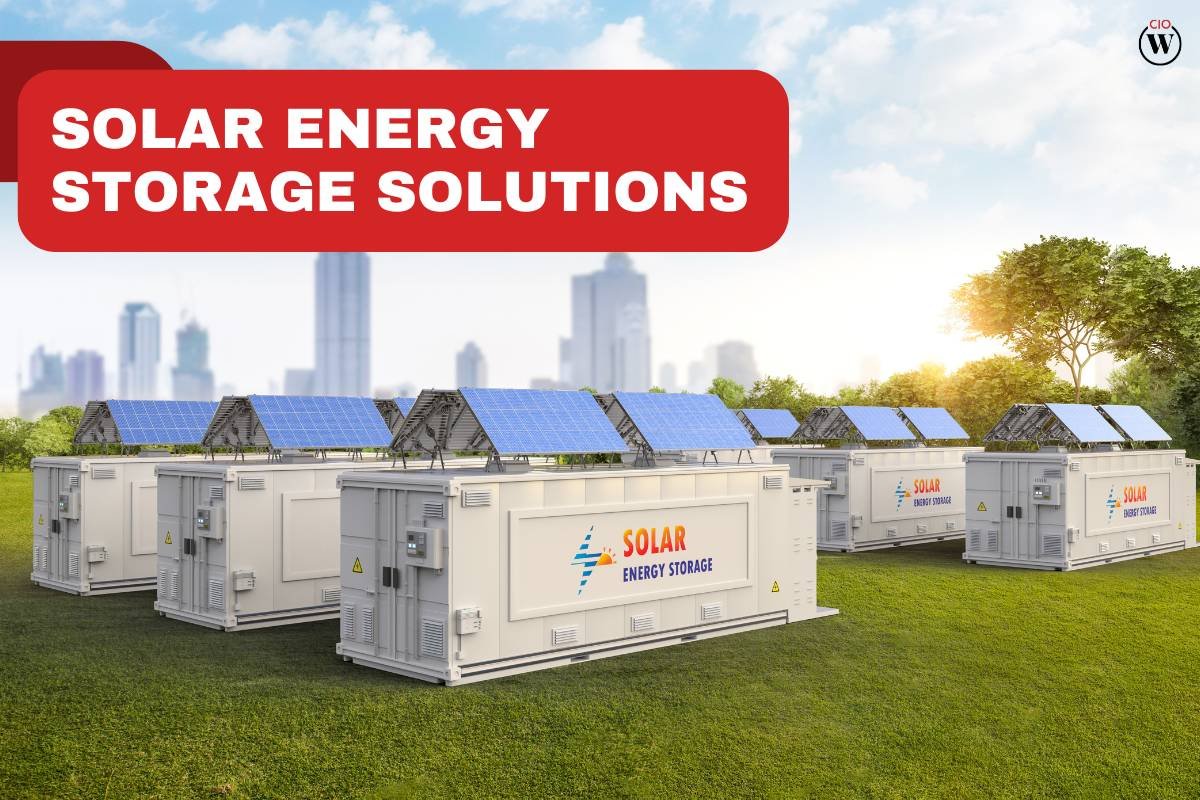Recently, solar energy has become a key part of sustainable energy plans around the world. However, storing solar energy effectively has been a challenge. Good storage solutions are crucial for making solar power systems more efficient and reliable. This article looks at the latest improvements in solar energy storage and how they are boosting the performance of solar power systems.
Understanding Solar Energy Storage Solutions
Solar energy storage solutions are designed to capture and store energy generated by solar panels for use when sunlight is not available. The primary goal of these solutions is to ensure a consistent and reliable energy supply, even during periods of low or no solar generation. This capability is crucial for balancing energy demand with supply and improving the overall efficiency of solar power systems.
Types of Solar Energy Storage Solutions
1. Lithium-Ion Batteries
Lithium-ion batteries have become the most popular choice among solar energy storage solutions due to their high energy density, long lifespan, and relatively low maintenance. These batteries store energy by moving lithium ions between two electrodes. The high energy density of lithium-ion batteries allows them to store a significant amount of energy in a compact form, making them ideal for residential and commercial solar systems.
2. Lead-acid batteries

Lead-acid batteries are another traditional option for solar energy storage solutions. Although they are generally less efficient and have a shorter lifespan compared to lithium-ion batteries, they remain a cost-effective choice for many applications. Lead-acid batteries are typically used in off-grid solar systems where cost is a critical factor. Their reliability and robustness make them suitable for various energy storage needs.
3. Flow Batteries:
Flow batteries are a newer technology in energy storage. They store energy in two electrolyte solutions separated by a membrane. When energy is needed, the electrolytes are pumped through a cell where a chemical reaction generates electricity. Flow batteries are known for their scalability and long cycle life, making them suitable for large-scale solar installations and grid energy storage.
3. Solid-State Batteries
Solid-state batteries represent an emerging technology in energy storage. Unlike conventional batteries that use liquid or gel electrolytes, solid-state batteries use a solid electrolyte. This design improves safety and energy density while reducing the risk of leakage or thermal runaway. As research progresses, solid-state batteries may become a prominent player in the energy storage market.
4. Thermal Energy Storage
Thermal energy storage is another innovative approach. This method involves capturing excess solar energy as heat and storing it in materials like molten salt or phase-change materials. The stored thermal energy can be converted back into electricity when needed. Thermal energy storage is particularly useful for concentrating solar power (CSP) systems, which generate electricity by concentrating sunlight to produce heat.
Enhancing Efficiency with Innovative Storage Solutions
1. Advanced Battery Management Systems (BMS)

One of the key factors in enhancing the efficiency of energy storage solutions is the use of advanced battery management systems (BMS). A BMS monitors and manages the performance of batteries, ensuring they operate within safe limits and optimizing their lifespan. By implementing sophisticated BMS technology, energy storage systems can achieve higher efficiency and reliability.
2. Hybrid Storage Systems
Hybrid storage systems combine different types of energy storage solutions to leverage the strengths of each technology. For example, a hybrid system might integrate lithium-ion batteries for high-capacity storage with flow batteries for long-duration energy storage. This approach can optimize performance, reduce costs, and increase the overall efficiency of energy storage solutions.
3. Integration with Smart Grid Technology
The integration of energy storage solutions with smart grid technology is revolutionizing the way we manage and distribute power. Smart grids use advanced communication and control technologies to optimize energy distribution and storage. By connecting energy storage systems to smart grids, utilities can enhance grid stability, reduce energy losses, and improve the overall efficiency of power systems.
4. Energy Management Systems (EMS)
Energy Management Systems (EMS) play a crucial role in maximizing the efficiency of solar energy storage solutions. EMS use algorithms and data analytics to manage energy generation, storage, and consumption. By optimizing energy usage and storage based on real-time data, EMS can enhance the performance of solar energy systems and ensure a reliable energy supply.
Improving Reliability with Advanced Storage Solutions
1. Enhanced Safety Features
Safety is a critical consideration in the design of solar energy storage solutions. Innovations in battery technology, such as solid-state batteries and advanced thermal management systems, are improving the safety of energy storage systems. These advancements reduce the risk of overheating, leakage, and other potential hazards, enhancing the reliability of solar energy storage solutions.
2. Longer Lifespan and Durability
The reliability of solar energy storage solutions is closely tied to their lifespan and durability. Advances in battery chemistry and materials are extending the lifespan of energy storage systems and reducing degradation over time. Longer-lasting storage solutions not only improve reliability but also reduce the overall cost of ownership by minimizing the need for frequent replacements.
3. Scalability and Flexibility
Scalability is a key factor in ensuring the reliability of solar energy storage solutions. Innovative storage technologies, such as flow batteries and modular battery systems, offer flexibility in scaling up or down based on energy needs. This adaptability allows for better management of energy supply and demand, enhancing the overall reliability of solar power systems.
4. Redundancy and Backup Systems
Redundancy and backup systems are essential for maintaining the reliability of solar energy storage solutions. By incorporating multiple layers of storage and backup options, solar energy systems can ensure a continuous power supply even in the event of a failure or unexpected demand. Redundant storage systems enhance reliability and provide peace of mind for both residential and commercial users.
Future Trends in Solar Energy Storage Solutions

The future of solar energy storage solutions is shaped by ongoing research and technological advancements. Here are some emerging trends to watch:
1. Increased Energy Density
Future solar energy storage solutions are expected to feature higher energy density, allowing for more energy to be stored in smaller and lighter systems. Advances in materials science and battery chemistry will drive these improvements, making energy storage more efficient and cost-effective.
2. Integration with Renewable Energy Sources
The integration of solar energy storage solutions with other renewable energy sources, such as wind and hydro power, will become more common. Hybrid renewable energy systems will provide a more reliable and stable energy supply, further enhancing the efficiency and reliability of solar power.
3. Advancements in Recyclability
As the adoption of solar energy storage solutions grows, the focus on sustainability and recyclability will intensify. Future technologies will emphasize the use of recyclable materials and environmentally friendly disposal methods, reducing the environmental impact of energy storage systems.
4. Enhanced Artificial Intelligence (AI) Capabilities
Artificial Intelligence (AI) will play a significant role in optimizing solar energy storage solutions. AI algorithms will improve energy management, predictive maintenance, and fault detection, leading to more efficient and reliable energy storage systems.
Conclusion
New solar energy storage solutions are changing how we use solar power, making it more efficient and reliable. With advances in battery technology, hybrid systems, and smart grid integration, these innovations are leading to a more sustainable and dependable energy future. As research continues, solar energy storage will keep improving, making solar power an even better and more reliable energy source. Embracing these new solutions is key to getting the most out of solar power and creating a cleaner, more sustainable future.
Also Read:15 Essential Nutrition Tips for Female Athletes: Fueling Performance









